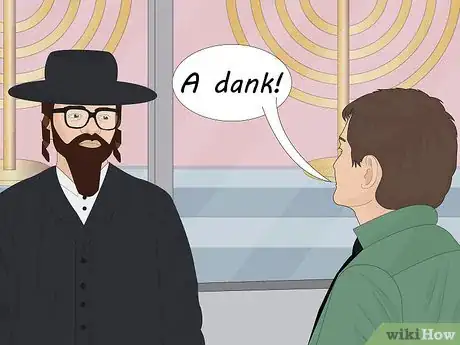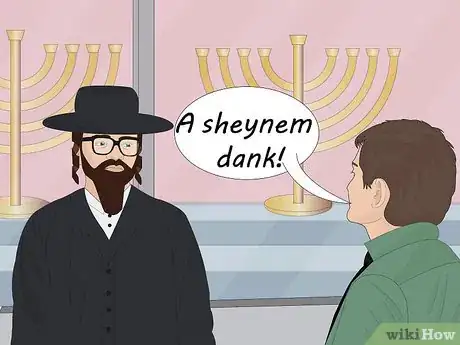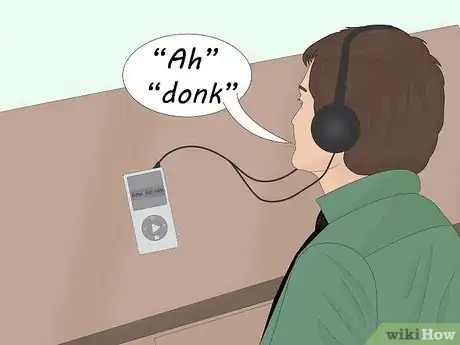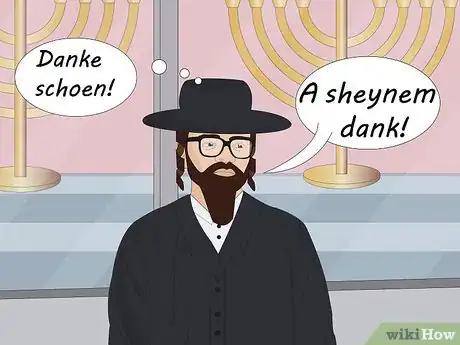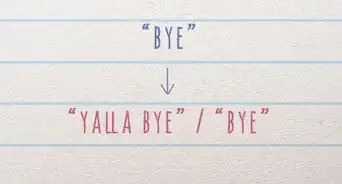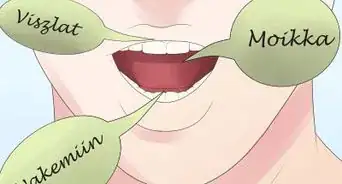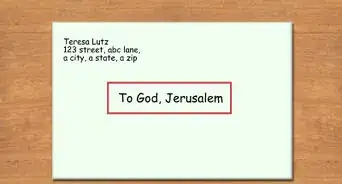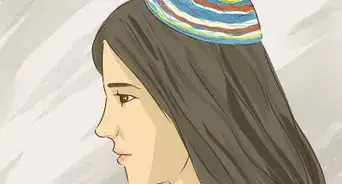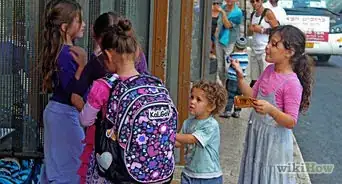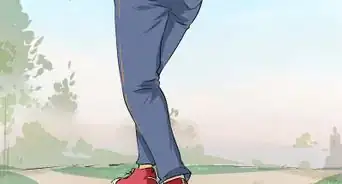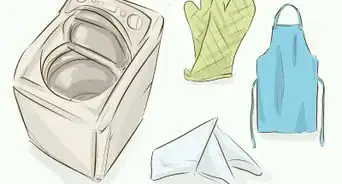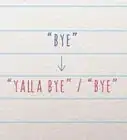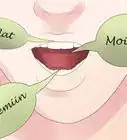X
wikiHow is a “wiki,” similar to Wikipedia, which means that many of our articles are co-written by multiple authors. To create this article, 25 people, some anonymous, worked to edit and improve it over time.
This article has been viewed 102,118 times.
Learn more...
So you want to say "thank you" in Yiddish. Say "a dank" to mean "thank you", and say "a sheynem dank" for "thank you very much."[1] Read on for more cultural context!
Steps
-
1Say "A dank" (אַ דאַנק). Pronounce it "ah dank". This phrase directly translates to "thank you." Say it in any situation that calls for thanks.[2]
-
2Learn how to say "thank you very much." Say "A sheynem dank" (אַ שיינעם דאַנק) – pronounced "ah shay-nem dank". Bring out this phrase in situations where you are feeling especially grateful.[3]Advertisement
-
3
-
4Understand the roots of Yiddish. It is no coincidence that "a dank" and "a sheynem dank" sound like the German "danke" and "danke schoen." Yiddish is the traditional tongue of the Ashkenazi Jews. The language came about in 9th century Central Europe, drawing its influences from a rich cultural context of languages and peoples. Yiddish took elements from German, Hebrew, and Aramaic, as well as certain Slavic and Romance languages.[6]
- Many Yiddish words (including אַ דאַנק, or "a dank") are written in the original Hebrew or Aramaic. Words of European origin are written out using the phonetic pronunciation.
Advertisement
Community Q&A
-
QuestionAre there (or were there) different dialects of Yiddish spoken throughout the world? Would Yiddish spoken in Poland, for example, be intelligible to Yiddish speakers in say Romania?
 Community AnswerThere are many dialects of Yiddish, and they're usually mutually understandable. For instance, you might say "kegal," "meshiga," and mema" for 'pudding," "crazy," and "aunt," but many speakers say "kugel," "meshugah," and "muma." In other words, where one says "ee", others say "oo".
Community AnswerThere are many dialects of Yiddish, and they're usually mutually understandable. For instance, you might say "kegal," "meshiga," and mema" for 'pudding," "crazy," and "aunt," but many speakers say "kugel," "meshugah," and "muma." In other words, where one says "ee", others say "oo". -
QuestionHow do I say, "Thank you for the bed"?
 Community AnswerAdank far di bet.
Community AnswerAdank far di bet. -
QuestionHow do I say "You're welcome" in Yiddish?
 Community AnswerYou would say "Nishto far vos" (נישתּו פֿאַר װאָס).
Community AnswerYou would say "Nishto far vos" (נישתּו פֿאַר װאָס).
Advertisement
References
- ↑ http://www.omniglot.com/language/phrases/yiddish.php
- ↑ http://www.linguanaut.com/english_yiddish.htm
- ↑ https://omniglot.com/language/phrases/yiddish.php
- ↑ http://forvo.com/word/%D7%90%D6%B7_%D7%93%D7%90%D6%B7%D7%A0%D7%A7/
- ↑ https://www.youtube.com/watch?v=lZ2L_mgFv-s
- ↑ https://www.britannica.com/topic/Yiddish-language
About This Article
Advertisement
